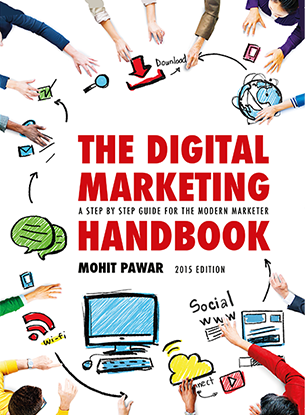 Small is beautiful but big is powerful.
Small is beautiful but big is powerful.
Through the lines that follow we will try to explore why businesses should make an attempt to become big and explore ideas to attain size.
Opportunity and action drive an enterprise. Business leaders decide on the direction. You will find business both — small and big following opportunities. The size comes from mindset. Small and big both need different kind of mindset to build and run.
Small business work with minimal resources and produce just enough. Small size helps them add a personal touch. For such businesses – ability to defend the turf from big players — is the key to their survival. Pricing is a major differentiator. The advantage here – less or no employees to manage, less clients to respond to, more control on how things are run. These businesses are mostly by solopreneurs and a team of founders.
Big business needs aggression, hunger for more, a wider offerings bouquet, scalability, systems and a mostly a large team. The key here is to — achieve scale fast (to offset cost with high revenue), a large customer base, hiring right talent and integrating their expertise with needs and culture of the company. Big business needs to take bold steps to move ahead to encompass more — business, people, and ideas into its fold.
It is likely that big businesses are run by a team of people outside founding group.
You may already be big or may be willing to be big. Before you decide on whether you want to become big or stay small, let us first look at pros and cons.
Pros:
- It is easy to attract attention. This attention can be used to get publicity via media or get funding.
- If your business serves enterprise market — then it helps to have some scale before you pitch to big clients.
- With a big business and brand it is easy to attract right talent.
- Big businesses can go after many opportunities at one go and increase faster than a small business.
- A big business can make a mark by provide employment, create a legacy, or simply make a fortune.
- Big often overpowers small and win.
Cons:
- More cost leakage points
- Less direct control — as delegation is a key to achieve scale
- Big business need to earn for employees first
Really large businesses face many challenges that come with size like less agility and increased running cost. But history has enough examples of businesses that have overcome these challenges. One can learn from such examples and keep marching ahead. So attempting to grow your business may be a worthwhile pursuit.
You have read this far means that you want to build a big business. Let us explore ideas that can help you reach there.
It’s in the mind: First you got to believe that big is for you and you want to pursue the dream of being big. Give yourself time (12 months) to make the transition if you are coming from a “small is beautiful” world.
Big Goals: It can be to generate USD 100 million in wealth during next 5 years (by end of 2015); to provide employment to 500 people (directly or indirectly); or to appear on cover of Time Magazine. Better if these goals are aligned with your purpose.
Big Market: You need a big enough market for your product or service. In a direct-consumer setting you may need the support of 50,000 customers in the enterprise market 500 can be a good number.
Unique offering/Speed: It goes without saying that you need speed and some degree of uniqueness in your offering to win the war. Because there are many ambitious souls out there who are working on attaining scale in your area of business. Speed is required to be able to address an additional demand from the market.
Big Action: Consistent and persistent effort in the direction of your goals is important. If you are running a SaaS (software as a service) business than to achieve a monthly top line of USD 1 million you will need attain you may be need to attract 2000 customers paying USD 50 per month. When you go finer you may need to add some more — as in a business situation there will also be customers who will decide not to renew their subscription.
Create a team and systems: It is almost impossible to create something really big alone – unless you are somebody like Markus Frind who single-handedly created and runs Plenty of Fish, one of world’s top dating website. Back in 2008, Markus worked 1 hour a day and made USD 10 million a year. The numbers must be better now. Barring exceptions like this you will need to create team and develop systems to enable smooth work flow and to attract and retain bright talent.
So are ready to move on to the path of big?
If you are already working on creating a big business — what are you doing to get there?



Pingback: Startup Success | Mohit Pawar . com
Pingback: Overnight success takes time | Mohit Pawar . com
Pingback: How to actually make an impact? | Mohit Pawar . com